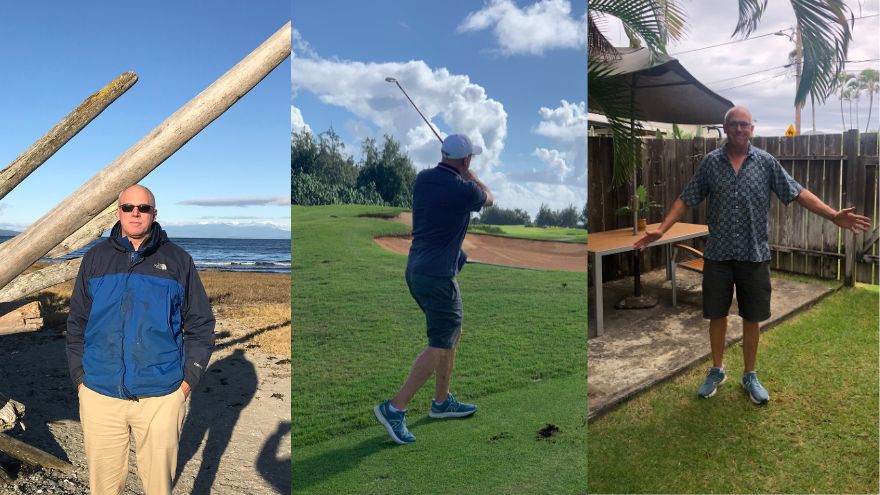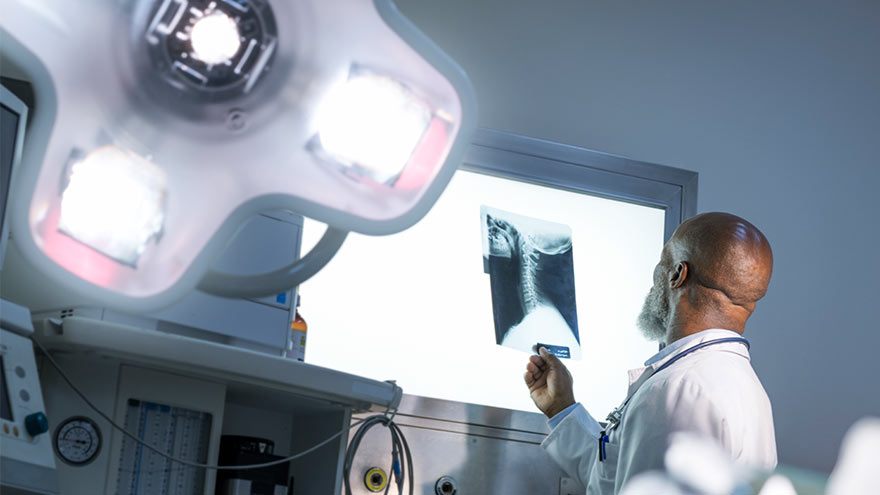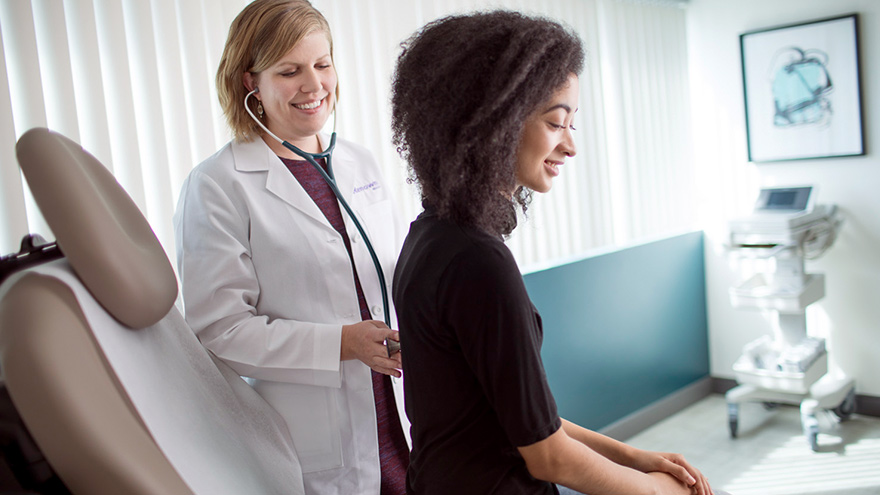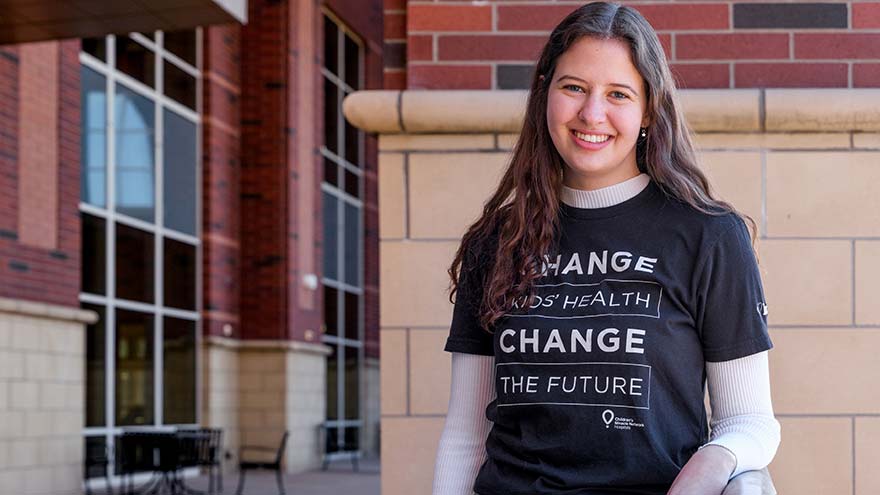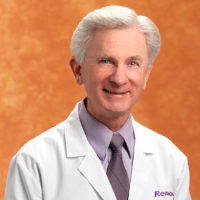Search
Results for 'doctor'
Clear-
Bladder Control Treatment for Women – What’s Right for You?
Although going to the bathroom is not a typical conversation among women and their doctors, it’s an important one. It is a topic you may want to discuss with a urogynecologist, a physician who diagnoses, manages and treats pelvic health conditions in women. Kerac Falk, MD, a urogynecologist and assistant professor at the University of Nevada, Reno and Renown Health discusses overactive bladder in women and how to treat it. According to the National Institutes of Health, about 1 in 4 women struggle with pelvic health conditions, with over 40 percent of women over age 60 experiencing problems. While these conditions may be common, they shouldn’t just be accepted as a normal part of getting older. In fact, many women don’t think of urine leakage as a medical problem, and only 1 in 3 women with incontinence seek care. So, while these conditions may be common, they shouldn’t just be accepted as a normal part of getting older. There are excellent treatment options that can significantly improve the quality of life. Overactive Bladder Symptoms in Women: As your body changes and ages, so does your pelvic health. Whether you just had a baby, are experiencing urgency issues or find you cannot go about your daily routine, sneeze or laugh without leaking urine – you’re not alone. An overactive bladder, also known as OAB, is more than feeling an urgent need to go to the bathroom. It can also include the following: Incontinence or lack of control over urination Waking up in the middle of the night to empty your bladder Going to the bathroom often, even every 30 to 60 minutes Symptoms of OAB can lead to a decreased quality of life, feeling as if you cannot go about your normal daily routine, or even become hazardous, increasing the risk of trips, falls, and bone fractures. Various Treatments are Available: Behavioral management (eliminating coffee, soda and alcohol which irritate your bladder) Pelvic floor physical therapy to optimize nerve and muscular function and coordination to prevent leakage Medications including tablets and local estrogen replacement Pelvic nerve stimulation and reprogramming treatments Botox to relax the bladder muscle Solutions for an Overactive Bladder: Simply put, OAB is a nerve and muscle problem, so the bladder needs to calm down. Although there is no underlying reason for OAB, some underlying conditions may exist, such as: High blood pressure Recent trauma Neurological conditions (such as stroke and multiple sclerosis) Lifestyle and non-invasive measures can usually reduce symptoms by as much as 50%, significantly improving quality of life. However, if these measures do not help your OAB, further bladder testing may be needed. Dr. Falk notes that “every patient has a unique situation and set of symptoms. My job as a urogynecologist and pelvic floor subspecialist is to work as a team with each individual to figure out what’s going on and design the best treatment approach that fits your needs and goals, whether that is conservative or with more advanced procedures. The outcome we are working towards is improved quality of life.” If you are bothered by your bladder, the best thing you can do is bring this up with your primary care doctor or gynecologist to begin to discuss solutions
Read More About Bladder Control Treatment for Women – What’s Right for You?
-
Excellence in Heart Care Changes a Patient's Life
Being diagnosed with a chronic heart condition like atrial fibrillation (A-fib) can shift the course of your entire life. Embracing heart medications and lifestyle changes become your norm, and thanks to advancements in medicine and medical technology, managing the condition can bring you to a new sense of normalcy. But what if a different option was possible – one that would make medications and activity limits a thing of the past? This became the reality for Renown Health patient Richard Preyer after receiving a hybrid catheter ablation. Thanks to the vigilant surgical care of Shining Sun, MD, a cardiologist at the Renown Institute for Heart & Vascular Health, and his compassionate team, Richard has a new lease on life. Minimally Invasive with Maximal Results An A-fib patient since 2010 who had been living with an unfinished ablation, the 59-year-old Carson City resident turned to the internet to look for alternate solutions. He had heard that the Renown Institute for Heart & Vascular Health was a top-tier location for cardiovascular care. “I changed health insurance plans through Nevada Health Link to ensure I could see a Renown cardiologist,” said Richard. Choosing a cardiologist was an even easier decision for Richard. Dr. Sun’s introductory Find a Doctor video on Renown’s YouTube channel, where he displayed his expertise and determination, was more than enough for Richard to choose him as his cardiac care leader. At his first visit, Dr. Sun reviewed Richard’s records, and noted his prior unfinished ablation. The nine-hour procedure had been performed several years ago. With the enhanced technologies at Dr. Sun's disposal, Richard was excited at the thought of his life potentially being changed for good – with a minimally-invasive solution. Dr. Sun collaborated closely with Richard’s previous and current care teams – including a surgeon who performed a maze operation on him right before his surgery at Renown, to ensure his hybrid ablation was tailored uniquely to him. “Dr. Sun is clearly a very powerful cardiologist with many connections, and the coordination between his team and my other doctors was great,” said Richard. After working on the exterior of the heart in the first phase of the surgery and the interior of the heart during the second phase, Richard’s hybrid ablation was successful, completing the unfinished portion of his previous ablation. “Fixing A-fib can take one to three ablations, and sometimes it never holds,” said Richard. “That is one of the largest reasons why I am so thankful for this procedure and how it ended up.” Life After A-fib Now comes the long, arduous healing process, right? Not for Richard. With only eight incisions (four on each side of his chest), he was able to remove his bandages after two days, and he healed completely in one week. “I was even back to taking three-mile walks within a week of my operation,” said Richard. No more blood thinners. No more activity limits. And most importantly for Richard, no more heart-stabilizing medications that came with side effects he didn’t enjoy. He attributes his enhanced life to Dr. Sun and his team. “I highly recommend Dr. Sun and everyone that works with him,” he said. “Everyone in the group, from the nurses and anesthesiologists going above-and-beyond to the schedulers who helped me navigate the appointment process, made me have a lot of confidence. Their calm demeanors made so much difference.” Today, Richard now enjoys elongated walks in the northern Nevada outdoors, exotic vacations with his wife and, as he describes, “feeling like I’m in my 40’s again.” Learn more about the region's leader in cardiac health, heart and vascular care here.
Read More About Excellence in Heart Care Changes a Patient's Life
-
Head, Neck and Oral Cancers: How You Can Spot and Treat Them
Head, neck and oral cancers account for just 3 percent of all cancer in the U.S. and can be hard to diagnose. Dr. Abhinand Peddada, radiation oncologist with the Renown Institute for Cancer, explains. While you likely don’t frequently hear about head, neck and oral cancers — they are significantly less common than many kinds of cancer — they can be extremely dangerous. One of the primary reasons: some symptoms mimic the common cold, making them difficult to detect without a medical professional. We asked Abhinand Peddada, M.D., radiation oncologist with the Renown Institute for Cancer, to break down the symptoms and lifestyle risks of these rare cancers. First off, what are some of the signs and symptoms of head, neck and oral cancers? Symptoms can vary based on where the cancer is. For example, throat cancer may show up as a persistent sore throat, while sinus cancer may present as soreness or pressure in the sinuses that doesn’t get better. Some other symptoms to watch may include: Swelling in the throat Painless swelling in the neck Red or white patches in the throat Hoarseness Bloody noses or blood in the mucus or saliva A new and unexplained lump or bump anywhere on the face, neck, mouth or throat Difficulty breathing Difficulty swallowing, chewing or moving the muscles in your face, neck, mouth or throat Bad breath, even with good oral hygiene Loose teeth Dentures or retainers that no longer fit Double vision Who is most at risk for head, neck and oral cancers? Both men and women can develop head, neck and oral cancers, but men are at almost twice the risk of women. People over the age of 40 are also at a higher risk, and these cancers tend to be more common in African Americans. Tobacco use — including cigarettes, cigars, pipes and chewing tobacco — is another risk factor. Tobacco is linked to 85 percent of head and neck cancers. Exposure to fumes and chemicals can increase your risk as well. We’re also seeing more HPV-related head and neck cancers in the U.S., so patients with HPV may want to watch more closely for symptoms. What about screening and prevention? Your dentist already looks for signs and symptoms at your regular dental checkups. Additionally, if you have one of these risk factors and are experiencing signs and symptoms, it’s a good idea to check with your doctor about possible screenings. To help prevent these types of cancers, try to minimize your controllable risk factors. This means quitting tobacco, watching your alcohol consumption and taking care of your oral hygiene by brushing and flossing regularly. We also recommend the HPV vaccination for both boys and girls starting at age 11. By vaccinating at an earlier age, one is less likely to develop oral HPV. What do diagnosis and treatment look like for these cancers? At Renown Institute for Cancer we offer the most advanced diagnostic testing available including fiberoptic photos, CT and PET scans, as well as MRIs. Together, you and your care team will decide which treatment best fits your needs. For these types of cancers, treatment options include radiation, chemotherapy and surgery. Renown Institute for Cancer | 775-982-4000 At the Renown Health Institute for Cancer, our experienced team provides the support and care to maintain the highest quality of life and then achieve the best possible outcome, all in one location that’s close to home. Our dedicated team, clinical expertise and advanced treatment options allow us to tailor care to each patient. Learn about: Our Team Cancers We Treat Screening and Prevention Treatment Options Find a Cancer Doctor
Read More About Head, Neck and Oral Cancers: How You Can Spot and Treat Them
-
Book Ahead to Make Urgent Care More Convenient
How do you take the waiting game out of your Urgent Care visit? Book ahead! Here’s how this convenient service can help you schedule your appointment and see updated wait times at area urgent care facilities. We’ve all been there, done that: It’s after hours, you need to see a doc, and urgent care is slammed. Renown now offers a convenient option that will enhance your experience. Here’s How Book Ahead Works: From your phone or computer, you can check urgent care wait times around our region. This lets you see if the urgent care by your office is busier than the one closest to home — which may help your planning. Through Book Ahead, you can join the line at a specific urgent care just as you would in person. This allows you to stay home or at work as long as possible so you are more comfortable. Book Ahead When and Where to Receive Care We have many choices when it comes to our medical care. Should you visit a doctor’s office, urgent care, emergency care or make a Virtual Visit? It’s important to know which choice is right for your situation or condition. We asked Luis Palacio, M.D., with Renown Urgent Care to explain the differences and how to make your visit as smooth as possible. If you have been experiencing flu-like symptoms for less than 48 hours, call your doctor’s office. They can then determine if you can be treated with a prescription antiviral medicine. Visit urgent care or the emergency room only if you are unable to eat or drink anything and may be dehydrated, have a fever over 102.5 degrees F, or are experiencing shortness of breath. You can use Renown’s Virtual Visits videoconference service for flu-like symptoms so that you don’t need to leave the comfort of your home and you reduce the risk of spreading the virus to others. Virtual Visits allow you to see an urgent care provider from your home or office using a cellphone, computer or tablet with video capabilities. It is open from 8 a.m. to 6 p.m. Monday through Friday, and 9 a.m. to 4 p.m. Saturday and Sunday. How Do You Book Virtual Visits? Go to Virtual Visits to get started. Here, you’ll learn what virtual check-in is all about: It allows you to stay where you are and receive text notifications once a care provider is almost ready to see you. Click, join a line, and we will ask you some questions about your symptoms. This allows us to make sure you don’t need to call 911 or go to the ER. Reasons to visit the ER include stroke, chest pain, severe shortness of breath, uncontrolled bleeding, seizures and severe allergic reaction. If you answer “no,” you will see the wait times for each urgent care location. If you need to get in right away, you can select the location with the shortest wait time. Or, if time is not an issue and you’d prefer to stay closer to your home or office, you can select that location. Once you’ve selected a location, you input your cell number, name and number of patients. As your appointment gets closer, urgent care will text you with updates on timing. When you get the text message, you can choose to get “more time” and have your appointment pushed back, or tell them you’re ready to be seen and on your way. Learn more about how to Book Ahead at Renown urgent care below.
Read More About Book Ahead to Make Urgent Care More Convenient
-
Why I Give: Sarah’s Story
As an avid soccer player, Sarah saw her fair share of doctors growing up. However, it wasn’t until she was diagnosed with celiac disease, an autoimmune disease affecting how the body ingests gluten, that she became passionate about healthcare. “I couldn’t figure out what was going on,” Sarah said. “I was getting sick, and my symptoms were getting worse.” Thankfully, after seeing a handful of doctors, she was on the path to recovery. “I remember being so relieved, and still am! Now I can focus on getting better,” said Sarah. The most important change people make after being diagnosed with celiac disease is the shift to a gluten-free diet. For many, Sarah included, living gluten-free is a lifestyle change. Thankfully, Sarah sees significant improvements in her health after adjusting her diet. “No one should just accept their symptoms as part of life,” said Sarah. Her increased awareness of health and nutrition motivated Sarah to study biology at the University of Nevada, Reno (UNR). “I want to be a pediatrician so I can help patients, especially kids, figure out treatment plans.” said Sarah who credits her experience living with celiac disease as her inspiration. Dancing for Kids’ Health Currently a senior at UNR, Sarah is a member of Phi Delta Epsilon, a co-ed international medical fraternity. Together with her classmates, she is bringing new energy and ideas to philanthropy. Sarah and the members of Phi Delta Epsilon are doing things differently and in many ways redefining what it means to give. This year, they are on a mission to raise funds for kids’ health at Renown Children’s Hospital. And they are doing this by dancing. The UNR Dance Marathon is part of the Miracle Network Dance Marathon, a student-led, year-round philanthropic movement that unites students across the United States and Canada. Collectively, they raise critical funds for Children's Miracle Network Hospitals. And Renown Children’s Hospital is our northern Nevada CMN partner hospital. Since 1991, over 400 college campuses and thousands of students have raised $300 million for kids. Sarah is the executive director of UNR’s chapter. “So far this year we’ve already raised $10,000 for Renown," said Sarah. Most of the fundraising happens on the day of the dance marathon. But throughout the school year, students hold mini fundraisers on campus and in the community. One hundred percent of the funds raised stay local, impacting Renown’s youngest patients. For every dollar donated, 18% helps provide charitable care, 15% goes to life-saving equipment, 12% supports medical research and 55% provides education, patient services and advancement services. “It's inspiring that we banded together to help kids in our community,” said Sarah. Last year they raised over $18,000. They are hoping to exceed that number at this year’s dance marathon in April.
-
What is an Ovarian Cyst, and How is it Treated?
Abdominal pain is one of the most common reasons for an Emergency Room visit. The abdomen is an area that encompasses multiple organs and functions. So how would you know when the pain you are feeling is an ovarian cyst or something else, and when should you seek medical attention? Dr. Carilyn Hoffman, at Renown Women's Health, explains. Ovarian Function Defined Located on each side of the uterus, the ovaries are part of the female reproductive organs and produce eggs (ova), released during the menstrual cycle, allowing for fertilization and pregnancy. They also produce hormones such as estrogen and progesterone, which play an important role in female traits, bone health, cardiovascular health and pregnancy. Symptoms of an Ovarian Cyst Cysts are solid or fluid-filled masses. Ovarian cysts can be in the ovary or on its surface. When cysts are enlarged or rupture, they can create a dull ache or sharp pain below the belly button. Besides discomfort and pain, other symptoms of ovarian cysts may include bloating, fullness, pressure or heaviness. "Ovarian cysts are common; most are physiologic and will go away on their own. They are frequently found incidentally on ultrasound and are present in the middle of the menstrual cycle," says Dr. Hoffman. "However, if a woman experiences sudden and severe pelvic pain they should seek immediate medical attention. Sometimes ovarian cysts can become large and twist on themselves. This is called ovarian torsion and is a surgical emergency. Other times, cysts can rupture and bleed. This is called a hemorrhagic cyst and can also be a surgical emergency." Diagnosis and Treatment If an ovarian cyst is suspected, your doctor will perform a pelvic exam and order an ultrasound. There are certain ultrasound findings that suggest that the cyst is benign. There are other ultrasound findings that are concerning for cancer. Small simple cysts often resolve on their own, whereas solid or very large cysts may require surgery.
Read More About What is an Ovarian Cyst, and How is it Treated?
-
Which Type of Breast Health Screening is Right for You?
Reviewed by Dr. Colleen O'Kelly-Priddy, MD, FACS, breast surgical oncologist at Renown Women's Health. In the United States, breast cancer is the most common cancer among women, with approximately 1 in 8 women developing breast cancer during their lives, reports the American Cancer Society. These statistics can be a little startling; however, when it comes to taking charge of your health, early detection is key. The National Breast Cancer Foundation, Inc. reports that when breast cancer is caught in its earliest, localized stages, the 5-year relative survival rate is 99%. The earlier breast cancer is found, the more treatment options are available and better survival rates are seen. New technology and evolving screening guidelines are crucial for women to understand and choose the right screening method for their specific needs. The most common types of screenings available today are: 2-D Mammography 3-D Mammography Whole Breast Ultrasound What is the Difference Between 2-D Mammography and 3-D Mammography? 2-D Mammography: In a standard 2-D mammogram, the tech takes X-rays of the breast, compressing it top-to-bottom and side-to-side, providing a 2-dimensional view in each direction. These pictures can show the radiologist if there are abnormalities you might not be able to feel. 3-D Mammography: In 3-D mammography, or “tomosynthesis,” the process is largely the same, but more images are taken, and it takes a few seconds longer. This kind of exam provides a more detailed view because it reduces the overlap of tissues that can take place in a standard 2-D mammogram. Using 3-D mammography, radiologists can detect 41 percent more cancers and reduce the number of callbacks for additional imaging. This improvement in technology is great for both patients and their care providers. Renown uses 3-D mammography because it produces better images of the breast, enabling doctors to more accurately diagnose and reduce false positives, especially in women with dense breast tissue.
Read More About Which Type of Breast Health Screening is Right for You?
-
How You Can be a COVID-19 Vaccine Ambassador
We get it – the entire world has been overwhelmed with COVID-19 vaccine information, questions and celebrations around vaccines developed to combat COVID-19 induring the past several months. It’s hard to know where to start in digesting all this news and information. But one thing is clear: healthcare experts agree that the authorized COVID-19 vaccines are safe, effective and recommended to help end this pandemic. If you are passionate about stepping up in your community to encourage the vaccination efforts, we’re offering a few ideas on how you can be an ambassador. Find the Facts Content on the vaccine is abundant, but and there’s a few resources that we can all rely on to help digest the information: The Centers for Disease Control (CDC) updates its website content around the vaccine regularly, and also offerings information in Spanish. Health departments across the U.S. are leading the way in distribution logistics planning, and partnering with other providers, like such as hospitals and pharmacies, to distribute give people doses. Their websites are great resources to understand options where you live. Locally, check out washoecounty.gov/health/programs-and-services/environmental-health/covid-19-guidance for vaccine updates in Washoe County. Many providers like Renown Health and other providers are sharing content around their recommendations for the vaccine. Get answers about the vaccine types from one of our pharmacists, read common concerns addressed by experts and view videos from many doctors and other specialists on our YouTube Channel.
Read More About How You Can be a COVID-19 Vaccine Ambassador
-
Happy and Healthy Life After Heart Valve Replacement Surgery
Watch what happens when a family’s matriarch finds out she has to have heart valve replacement surgery. Thanks to supportive cardiac care, she is now back to health and enjoying her extended family with a healthy heart. Marilyn O’Gorman has a full heart full of love: Just ask her six children, 15 grandchildren and six great grandchildren. However, in 2009, tests showed that same heart had medical issues. So her close family was by her side when she underwent heart valve replacement surgery. O’Gorman says her heart doctor, Athan Roumanas, MD, FACS, put her at ease about the surgery. “You’re very nervous — you’re scared,” says O’Gorman. “You don’t know: Are you going to come out of it? Is it going to work?” Heart Valve Replacement Surgery Comes with an Unexpected Question O’Gorman was asked to choose whether she’d prefer a pig or a cow valve — ultimately inquiring of Dr. Roumanas which one he’d choose for his own mother. “And he said, ‘Well, probably pig,'” she recalls. “And I said, ‘OK, I’ll oink for you.’ And that’s how I got that, and he did a wonderful job.” O’Gorman continues her care at the Renown Institute for Heart and Vascular Health, so she can stay heart healthy and spend her free time with the many generations of family in her life.
Read More About Happy and Healthy Life After Heart Valve Replacement Surgery
-
What is a High-Risk Pregnancy?
You can still have a healthy pregnancy and baby if your pregnancy is high-risk. Learn what steps you can take to give your baby the best start possible. A “high-risk” pregnancy is one that threatens the health or life of the mother or her fetus. Women with high-risk pregnancies should receive care health care specialists to ensure the best possible outcomes. Some examples of a high-risk pregnancy include: Maternal age, women 35 and higher or 17 and younger Lifestyle choices, including smoking, drinking alcohol and illegal controlled substances Existing medical history, chronic hypertension, diabetes and breathing issues Multiple gestation, pregnancy with twins or triplets Overweight and underweight Remember: You can still have a healthy pregnancy and baby if your pregnancy is high-risk. Some ways to promote a healthy pregnancy: Schedule an appointment with your OBGYN Eat a balanced diet Avoid substances Prenatal care Healthy weight gain Reduce stress Exercise Pregnancy & Childbirth at Renown | 775-982-KIDS (5437) When you are expecting a new baby, you can depend on Renown Children’s Hospital for all your mom and baby healthcare needs. We can help you find the right doctor and tell you what to expect during your stay. We offer childbirth education classes and tours to help you prepare. Be sure to check out our virtual tours of our Labor Assessment Area.
-
Bringing a Public Health Perspective to Healthcare
There are many lenses through which to view health. As you would expect, medical providers typically focus on the health of individual patients. For example, doctors consider a person’s symptoms, their current lifestyle, their past medical history, and their family’s history to diagnose medical conditions and recommend treatments. The Public Health Perspective Public health professionals look beyond the health of an individual and instead focus on the health of an entire community or population of people. They strive to achieve “the greatest good for the greatest number.” As the CEO of a health system, I feel fortunate to have education and training in both medicine and public health. As Renown Health’s leader, it is my responsibility to care for the people and communities we serve. That involves bringing world-class staff and innovative medical care to northern Nevada. We also focus on prevention by looking for ways to improve health outside of our facilities. That means partnering with local organizations to address the social, economic, and environmental factors that shape our health. Or working with local government to create policies that help to prevent disease and injury. In order to make a genuine and long-lasting impact on health, we must foster a community that helps our neighbors live well. Public health is especially important during times of crisis, such as the COVID-19 pandemic that we’re experiencing now. During these times, health systems must be able to swiftly shift focus from prioritizing the needs of individual patients to considering what is best for our local population. For example, we may need to temporarily limit hospital visitors or educate the public about how to socially distance in order to stop the spread of disease. Being prepared to make this shift and having strong relationships with our local health department and community organizations help us better serve the public. In both good times and bad, I am thankful that my public health background provides me with the perspective to look beyond our health system and embrace the health our community.
Read More About Bringing a Public Health Perspective to Healthcare

